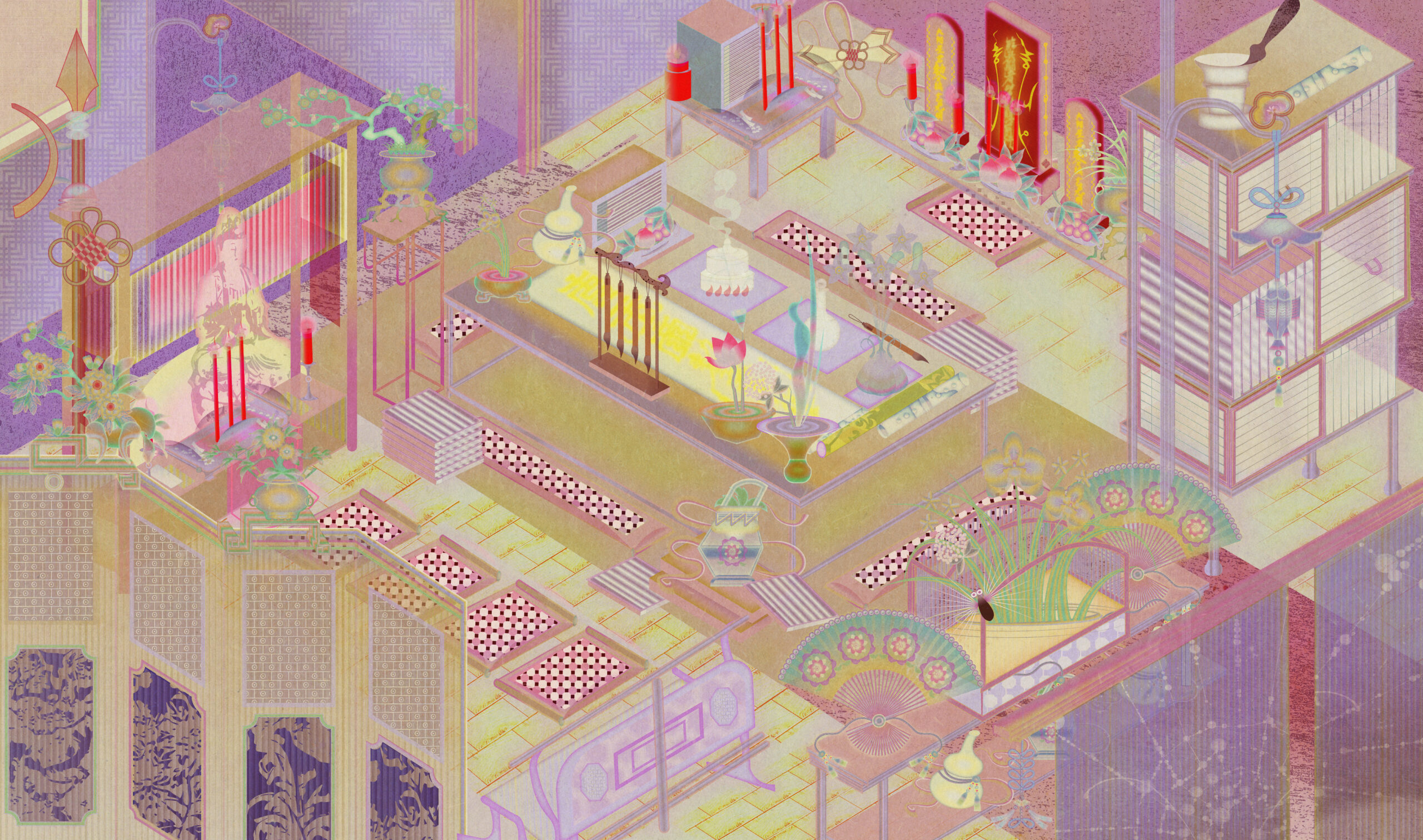19 SOLO SHOWS ABOUT PAINTING
| August 1, 2011 | Post In LEAP 9

“Nineteen Solo Shows About Painting” is in many ways a sort of classroom exercise— one through which featured artists can express their individual revelations with regard to painting, art, and existence. Coincidence or not, the majority of these paintings— derived from scenes of daily life— depict similar and universal experiences. The words of Jia Aili aptly throw into relief the overall temperament of the exhibition: “Yes, there is a storm brewing, but I am busy taking apart the emptiness that lies amidst purity.”
This is an exhibition of acute existential awareness. Xiao Jiang’s “Empty Scene” series and Jin Shan’s A Living Dog Is Better Than A Dead Lion take their inspiration from everyday trivialities; Lin Yenwei’s Just Like the Way You Are, Sun Wen’s The Sound from Strange Place, Qi Wenzhang’s You Are My Four Seasons, and Jia Aili’s The Nothing of Pure Emptiness excavate the theme of memory; Wu Guangyu’s Skillfully One Thing For Another, Qin Qi’s Blue Shoelace, and Song Yuanyuan’s Negative Room make use of light, shadow and the problem of space in response to questions of existence. The list goes on. On this exploratory journey, these artists are undeniably courageous and earnest. And yet without exception, they are each ultimately lead back to the same place: that of emptiness and loneliness.
These paintings hint at the purely illusory, at the intangible— evoking what would be the impossible sensation of stepping on a cloud. They betray a loneliness of existential proportions. In the preface for his exhibition, “Adaptability is the Strongest,” Liu Weijian writes, “Adaptability is humankind’s greatest power… our ability to adapt enables us to subsist while simultaneously rendering us completely helpless.” This statement, while fully cynical, vividly communicates pragmatism’s response to passive loneliness. We are helpless, tiny and insignificant: there is nothing to do but to adapt.
I’m more inclined to take joy in Liao Guohe’s blatantly scatological series of works, whose Chinese title literally translates as “Eating Is Also A Kind of Drawing,” and whose English title is simply “Shameless”— neither of which spares any effort to “save face.” The poignance of this choice rests in how few people would otherwise do what he has done— dig up humankind’s most base physical matters, out of their usual hiding place in the substrata of society. Without an ounce of shame, he spreads a big mouthful of food right out on the table for everyone to see. Milan Kundera has spoken of the problematic relationship between physical and metaphysical existence; he tells the story of the ugly death of Stalin’s son, who after years spent in a German concentration camp threw himself into the electric fence— no longer able to bear the guards’ relentless mocking of his bowel movements.
A civilized society will go to the greatest lengths to suppress corporeal impulses and desires; it will die a noble death over a mere instant of immodest humiliation. A barbaric society will allow vulgarity to run amuck, never tiring of its delights. The surreal, absurd, crude, and vulgar elements of Liao Guohe’s paintings evoke empathy, but they also make us reflect for a moment: when it comes to Chinese contemporary artists, ever since the first baldheaded figure let out that first world-famous yawn, has our psychological state undergone a fundamental shift? Cynicism and garishness are nothing more than the diversions of hooligans and common folk; physical vulgarity belongs to the realm of animal instinct. Only in a fascist regime can eating shit manifest itself as a kind of aesthetic, as with Liao’s The 120 Days of Sodom. Only an environment of brutal ignorance can make people live and produce as if they are animals. What is most important is not that we walk toward nothingness, but first that we acknowledge our own vulgarity, and acknowledge that we have no way to avoid this part of ourselves. It is through this base, ignoble state of being that we are grounded back in our own existence. Pu Hong (Translated by Katy Pinke)

